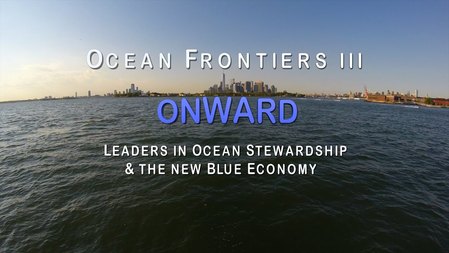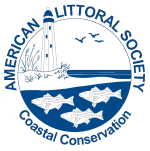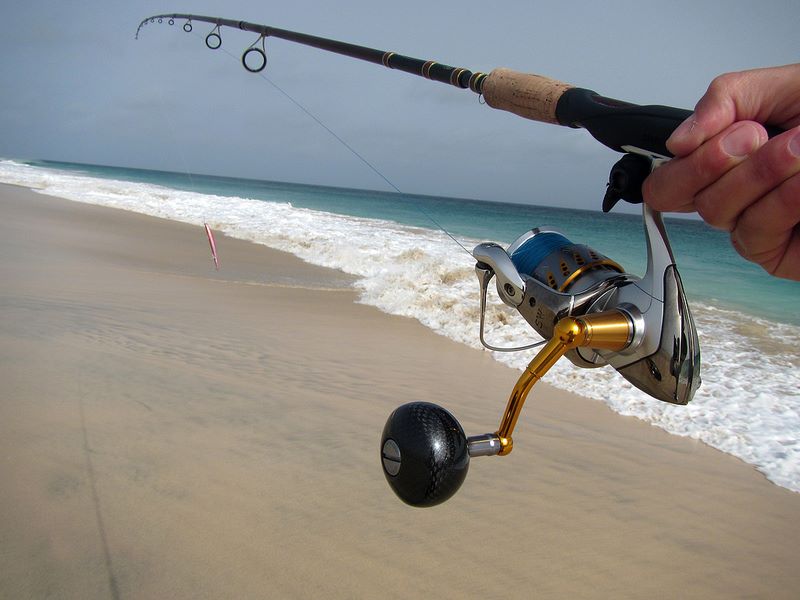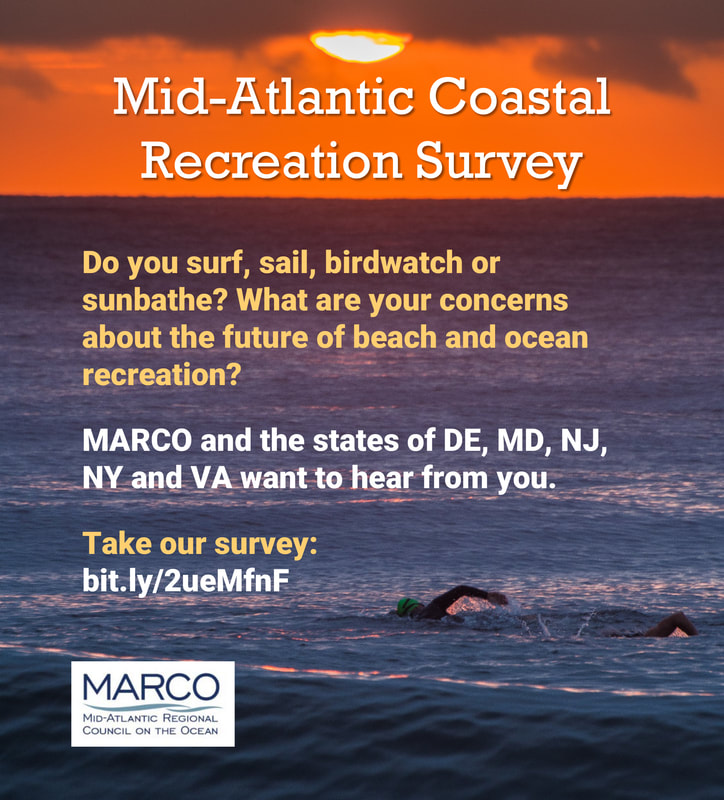|
Lavallette and Long Beach Township recently passed their own resolutions in support of the Mid-Atlantic Ocean Action Plan. The Society applauds the growing support by coastal towns for the Plan's conservation and environmental actions.
Press Release
Contact: Helen Henderson Ocean Planning Manager 732-546-2514 [email protected] October 4, 2017 New Jersey Municipalities Take Lead on Protecting Ocean Environment and Blue Economy The American Littoral Society thanks Berkeley Township (Ocean County), the Borough of Bradley Beach (Monmouth County), and the City of Asbury Park (Monmouth County) for showing leadership in support of ocean planning. These three coastal municipalities are the first to support the Mid-Atlantic Ocean Action Plan, the region's blueprint for ensuring a healthy Mid-Atlantic ocean ecosystem and sustainable ocean uses. Each adopted a resolution that strongly supports the Mid-Atlantic Regional Ocean Action Plan and recognizes the many benefits ocean planning brings to New Jersey. "Berkeley Township is proud to be the first Ocean County municipality to support the Ocean Action Plan," said Mayor Carmen Amato. "We have always supported the American Littoral Society and their efforts have helped to protect and improve our bay, ocean and many other natural resources. I hope that every municipality in Ocean County, as well as in the state, will follow suit and support this Ocean Action Plan to ensure that New Jersey's greatest natural amenity is protected and improved for generations to come." Every community along the New Jersey coast and throughout the state has a unique individuality. Yet one thing is connecting and certain: each and every one is somehow tied to the sea. With over 130 miles of shore from Sandy Hook to Cape May, it doesn’t take much to find the ocean connection between communities.
Three New Jersey coastal municipalities proudly expressed their connection to the ocean recently by becoming the first U.S. municipal governments to strongly support the Mid-Atlantic Regional Ocean Action Plan (OAP). The Mid-Atlantic OAP creates a more informed and coordinated approach to how we manage our ocean’s resources; ocean planning ensures we make smart decisions about future uses. Berkeley Township (Ocean County), the Borough of Bradley Beach (Monmouth County), and the City of Asbury Park (Monmouth County) each adopted resolutions strongly supporting a "strong, protective" Mid-Atlantic Regional Ocean Action Plan. You can find here resolutions strongly supporting the Mid-Atlantic Ocean Action Plan. The Society applauds these actions by our municipal ocean partners and we congratulate them for their leadership in the state of New Jersey and the entire Mid-Atlantic region by calling for the continuation of a strong, protective ocean plan. We look forward to working with them to ensure a healthy New Jersey coast and ocean.
Join Us!
Wednesday, October 11, 2017 6:30- 8:30 PM Monmouth University Magill Commons 107 & 108 400 Cedar Avenue West Long Branch, NJ 07764 Pizza and beverages will be served You are invited to a workshop hosted by MARCO and Surfrider Foundation, on behalf of the Mid-Atlantic Regional Planning Body’s Non-consumptive Recreation Work Group, to engage the public in a discussion of the value of important non-consumptive recreational areas and the activities they sustain. The Mid-Atlantic Regional Council on the Ocean (MARCO) and Surfrider Foundation are co-hosting a series of four workshops throughout the Mid-Atlantic region to convene ocean recreational users to provide input to the Mid-Atlantic Regional Planning Body’s Non-Consumptive Recreation Work Group. Workshops are being conducted in support of implementation of the Mid-Atlantic Regional Ocean Action Plan action: Identify, characterize, and share information about measures to maintain the recreational value of important non-consumptive recreational areas and the activities they sustain. Workshop objectives:
Please pre-register to make sure there is enough pizza! States in the Mid-Atlantic Region (i.e. Delaware, Maryland, New Jersey, New York, and Virginia) are working closely to better understand how and where people in the region participate in recreational activities such as surfing, boating, whale watching, birding, diving and more in the ocean and in coastal areas, and what concerns you may have.
Through the Mid-Atlantic Regional Council on the Oceans (MARCO), states are conducting an online survey of people who participate in ocean and coastal recreational activities. The purpose of the survey is to understand what types of recreational activities people take part in throughout the Mid-Atlantic region, and what concerns recreational ocean users may have about other current and possible uses of ocean and coastal resources. This information will be used by States’ Coastal Management Programs to guide ocean and coastal management policies and programs and help inform Ocean Planning in the region. The survey only takes 15-20 minutes to complete and will close on September 5, 2017. The more recreational users that take the survey, the more valuable the information is to inform ocean and coastal policies and programs. The American Littoral Society wants to ensure that conserving the ocean’s resources is fundamental to any future plans for the ocean and we believe that stakeholder input is of the utmost importance. The way we use the ocean is expanding rapidly. Offshore shipping traffic is increasing, plans for offshore energy projects are becoming a reality, and agencies are planning long-term beach replenishment projects that could negatively impact resources by sand mining from important places that serve as prime fishing areas or habitat for developing fish. That’s why over the last several years, we have been working to ensure a healthy mid-Atlantic ocean through the Mid-Atlantic Regional Ocean Action Plan. Regional ocean planning allows us to holistically look at proposed uses and the health of our ocean. We hope you’ll help contribute to the process by taking this survey before September 5th. Thank you and happy summer!  The Littoral Society calendar is full of ocean planning events over the next few weeks. In addition to a talk for the Friends of Island Beach State Park lecture series and presentation to the Brick Township Environmental Commission, there are two showings of "Ocean Frontiers III" -- including the New Jersey premier on April 6 at Monmouth University. Ocean planning is designed to help coordinate the rapidly expanding demands on how we use the ocean while protecting areas that are environmentally important. For example, shipping traffic is increasing, plans for offshore energy projects are becoming a reality, and sand mining efforts could have a negative impact on habitat for developing fish. The Northeast and Mid-Atlantic coastal areas implemented the first US ocean action plans late last year. News Date: 12/30/2016 Printed in The Star-Ledger
Tim Dillingham Guest Columnist Conflict is looming just beyond the horizon on the high seas off New York and New Jersey - and it doesn't bode well for our appetite for fish at the dinner table. As reported in The Star-Ledgeron Dec. 9, "Commercial fishing companies, trade groups and seaport communities in four states (recently) asked a court to stop the federal government from auctioning off the rights to develop an offshore wind farm" in the Atlantic Ocean. Will fighting clean-energy wind mills become a quixotic effort from the commercial fishing industry? This shouldn't even be a question if there was proper planning. Contact:
Sarah Winter Whelan Helen Henderson Ocean Policy Program Director Ocean Planning Manager 503-267-9577 732-575-5701 [email protected] [email protected] Sandy Hook, NJ -- The American Littoral Society applauds today's adoption of the Regional Mid-Atlantic Ocean Action Plan by the National Ocean Council. This action clears the Action Plan for implementation by federal, state and tribal entities. "Throughout this effort, our goal has been to ensure that the Plan will be a blueprint for conservation and management to protect the ocean and its natural resources. This Final Action Plan will be the foundation," said Tim Dillingham, Executive Director of the American Littoral Society. "The next goal will be effective implementation." The Action Plan is particularly important as the ocean and coastal waters of the Mid-Atlantic region are environmentally and economically crucial. Over 34 million people call the Mid-Atlantic coastal region their home. The Mid-Atlantic ocean and coast serve as an economic engine, generating $2 trillion or 14 percent of U.S. annual gross domestic product. "The importance of this step cannot not be undersold and we are thrilled to have a Final Plan in our hands," said Sarah Winter Whelan, Ocean Policy Program Director for the Littoral Society. "However, now is when the real work begins. Implementation will bring another set of opportunities and challenges for us to ensure conservation prevails in this Plan." As part of the Plan's finalization, the Mid-Atlantic Regional Planning Body will host a webinar on Thursday, December 8 detailing the changes made between the draft and final Action Plan and the next steps for implementation. For more information on the webinar, go to MidAtlanticOceanPlanning.org. The importance and need for this type of an action plan is clear. The ocean and coast are hubs for commercial and recreational fishing, shipping transportation to and from multiple ports, renewable energy production, high-speed telecommunications, science and research, tourism, and countless recreational interests and industries. Demands to increase existing uses and open the area to new development drive home the need for a plan that will help protect the environment and ecosystems. The Mid-Atlantic region is already struggling with issues related to multiple forms of water pollution that are harming the environment and limiting the quality of life in our coastal communities. Likewise, increased activity and disturbances in offshore areas threaten sensitive and unique habitats, as well as the multi-billion dollar tourist industry built around those attractions. Protecting such sensitive areas and preventing fossil fuel development are the Littoral Society's top priorities for the Mid-Atlantic Ocean Plan. "Years of time, effort and dedication are represented in this new plan," said Helen Henderson, the Society's Ocean Planning Manager. "This Plan will connect federal, state and tribal agencies in ways that will serve the public need while protecting our irreplaceable resources." The American Littoral Society applauds the submission of the Regional Mid-Atlantic Ocean Action Plan to the National Ocean Council for final review and adoption. This action is the final step before the Action Plan will be considered final and ready for implementation by over 18 federal, state and tribal entities.
Submission of the final Mid-Atlantic Ocean Action Plan (Action Plan) concludes a four-month outreach process that included public review and comment of the draft Action Plan through written comments, public meetings and listening sessions around the region. The final version of the Action Plan submitted to the National Ocean Council incorporates feedback from the public during this summer’s outreach. "The Mid-Atlantic ocean faces increasing demands on its resources, space and ecology," said Tim Dillingham, Executive Director for the American Littoral Society. "We need a strategy that will protect marine life, as well as the traditional uses and clean water economies on which our coastal communities depend. This Ocean Action Plan can be a tool to reach those goals, and we will be reviewing how the agencies incorporated our feedback into the Ocean Action Plan.” |
Archives
November 2017
Categories
All
|
|
MidAtlanticOceanPlanning.org
is a project website for the American Littoral Society. The American Littoral Society promotes the study and conservation of marine life and habitat, protects the coast from harm, and empowers others to do the same. |
18 Hartshorne Drive Highlands, NJ 07732
732-291-0055 |



 RSS Feed
RSS Feed
